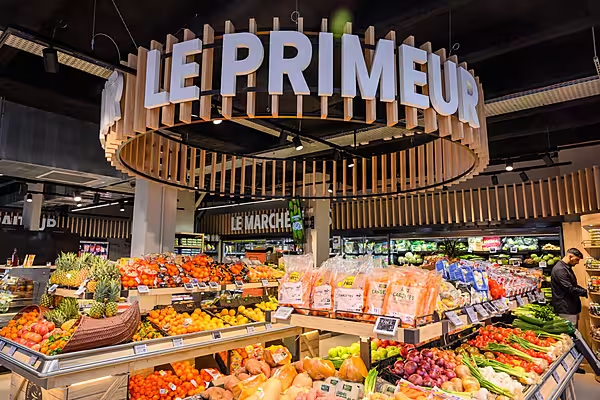In the shadow of the Massif Central's extinct volcanoes, the production line at French glacé-fruit producer Cruzilles is working flat out to meet a glut of advanced orders from its number one export market: Britain.
The 130-year-old confectioner finds itself at the sharp end of a rush by British retailers to stockpile ahead of Christmas, with a divorce deal between Britain and the European Union still elusive barely two weeks before an 31 October deadline.
Spike In Deliveries
Chief executive Roland Gibert, who counts London's up-market department store Fortnum & Mason among his British buyers, has hired extra staff to meet the unexpected spike in deliveries for its candied fruits, glazed chestnuts and fruit jellies.
"Some of our British clients have been very insistent on delivery before 31 October," Gibert said as workers poured fruit syrups from copper vats for cooling and hand-sorted candied red chili peppers destined for a British chocolatier.
"We're having to deliver 30% of our exports to Britain ahead of time. That complicates production, our production lines are flat out."
Tight deadlines have meant unforeseen night shifts, stretching costs further. The alternative, though, is to risk losing contracts that have helped Gibert double the company's exports since he bought it a decade ago.
Exports account for some 15% of Cruzilles's annual €9.5 million ($10.5 million) turnover. A third of those go to Britain.
With Brexit negotiations facing an unpredictable endgame, British retailers and their foreign suppliers have had to restructure operations in case of a chaotic no-deal outcome.
No deal would mean an end to frictionless trade between Britain and the EU, the world's largest free trade bloc, with the arrival of customs checks threatening to shatter just-in-time supply chains, clog ports and delay deliveries.
Financial Price
A survey by the Chartered Institute of Procurement and Supply (CIPS) showed one in five British businesses are importing Christmas stock early to avoid possible border disruption.
"It's the worst time of year (for retailers)," said CIPS economist John Glen.
Cruzilles generates two-thirds of its annual revenues in the final four months of the year.
"We're going to pay a financial price this year," Gibert said. "That's for sure, because we've had to produce more during our most intense period. And it's always at that point when your marginal costs are at their highest," he added, saying he couldn't yet quantify the additional costs.
Other Challenges
It is not just the advanced orders that trouble Gibert, but also the wild swings in Britain's sterling currency and the possible return to customs formalities and trade tariffs.
Britain's membership of the single market has meant the paperwork for supplying Fortnum & Mason in London has been no more complex than delivering to high-end buyers such as Galeries Lafayette and Casino-owned Monoprix in Paris.
Cruzilles's British clients were being slow to commit to 2020 orders because of uncertainty over the shape of future British-EU trade ties, Gibert said.
"Britain has always been where we've prioritised our business development efforts," Gibert said. "But for 2020 we said to ourselves let's focus elsewhere because with Britain we just don't know."














